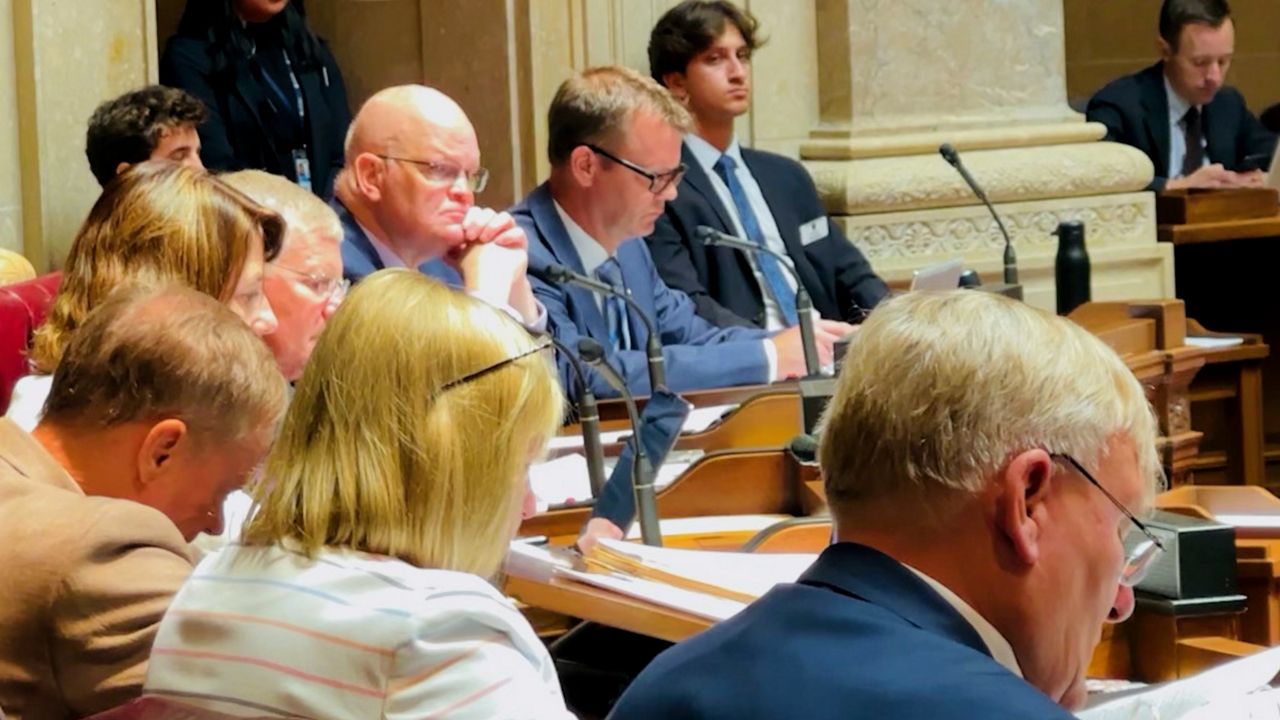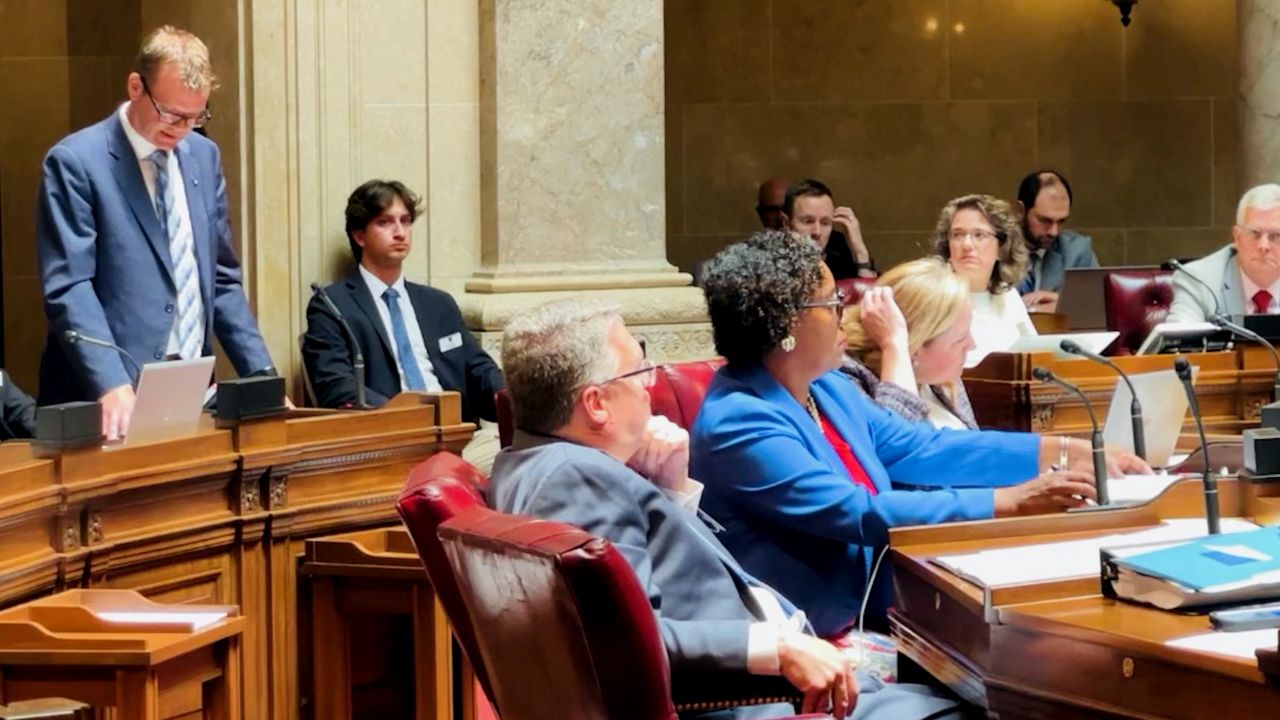MADISON, Wis. — The biennial spending plan for Wisconsin could be across the finish line by the end of the week as lawmakers in the state Senate were expected to take the first votes on the bill Wednesday afternoon.
The Republican-led Joint Finance Committee (JFC) spent the last couple of months reworking the fiscal package and ultimately settled on a price tag of roughly $98 billion over the next two years, which is almost $7 billion shy of what Democrat Gov. Tony Evers had proposed.
Lawmakers in the Senate stood ready to cast the first votes Wednesday on the major spending bill, which included a bipartisan compromise to boost funding for K-12 schools by $1 billion as part of a broader deal to provide local communities with more money while helping Milwaukee avoid bankruptcy.
“Time and time, we heard from Republicans scolding us, ‘This is one-time money, you can’t fritter it away. We can’t spend money on the investments that are important to the people of Wisconsin because it’s one-time money,’” State Sen. Kelda Roys, D-Madison, who is a member of the finance committee, told reporters ahead of the vote.
With a projected surplus of nearly $7 billion, Democrats argued more could have been done with the funds, while Republicans touted a $3.5 billion tax cut for all incomes.

“This is a surplus that was caused by being paid in by the hard-working taxpayers of the state," State Rep. Terry Katsma, R-Oostburg, said during a press conference announcing the relief last Thursday. "Families are hurting in [these] inflationary times and this is a way for us to provide tax relief to them.”
Just as important as what is included in the budget is what has been cut.
The UW System is faced with a cut of $32 million—an amount Republicans said is equal to what has been spent on diversity, equity, and inclusion efforts.
“For people on the left, it’s become their new religion," Assembly Speaker Robin Vos, R-Rochester, previously said to reporters on June 14 during a media availability. "They no longer go to church on Sunday, but boy are they trying to make sure everybody is evangelized on campus so that there’s only one acceptable viewpoint. That’s not what I think taxpayers should be funding.”
Money for a school safety office run by the state’s Department of Justice, and a child care subsidy program created during the pandemic, both of which relied on federal funds that will soon expire, also did not get state dollars.
“We’re creating more child care deserts, and what does that mean to Wisconsin? That means people will make that decision that one of the parents needs to stay home,” State Sen. Jeff Smith, D-Brunswick, said.

The current budget will expire on Friday. Once the bill is passed by the Senate, lawmakers in the Assembly are expected to act on the legislation Thursday. After it clears both chambers, the bill will go to Gov. Evers, who has three options: sign the bill, veto it in its entirety, or issue partial line-item vetoes to tweak language but not increase funding amounts.
If hang-ups arise as the final votes are taken, there would not be a government shutdown, and current funding levels would stay the same until a new budget is passed.


